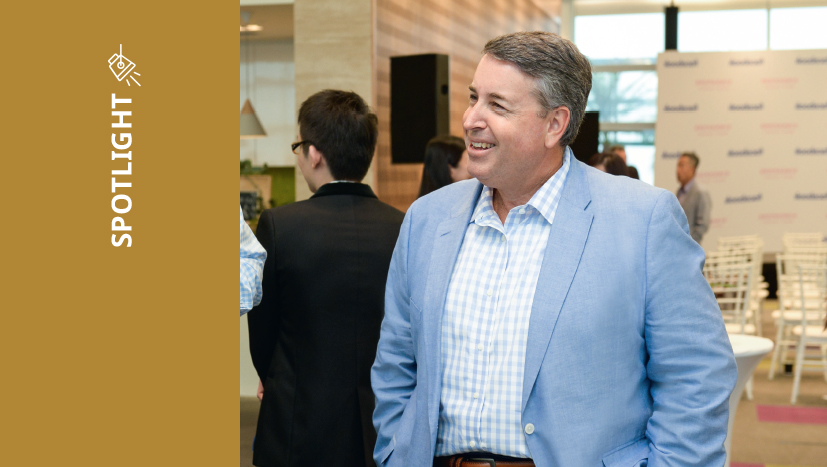Tom Furlong is a founding member of iMasons Advisory Council. As the Vice President of Infrastructure Data Centers at Facebook, Tom is responsible for the creation and execution of the strategy to source and operate mission critical assets, which support the company’s computing and networking infrastructure.
Did you choose this industry, or did it choose you?
Let’s say that I did not choose the way this unfolded. I was an engineer out of college and ran a steam propulsion plant in the Navy. After leaving the Navy, I worked as a planning engineer in a heavy construction company, concurrently pursuing an MBA in Finance. The expertise and skills that I had attained in these formative years of my career proved complementary to work in the data center industry.
My first opportunity to work in the space came in 2000, when I joined an Internet company, Exodus Communications, where I worked in a variety of roles-including running the capital build program and managing data center facility operations. In 2005, Yahoo! asked me to establish a program to design and build their data centers. This is where I expanded my knowledge to include the site development process.
In 2007, Facebook recruited me to lead the technology side of their data center vertical, paving a road for me to oversee the server and networking technology. Ever since, my team’s responsibilities have grown exponentially to encompass energy procurement, site selection, design, construction, facility operations, server and networking equipment installation and operations. When I think back to the beginning, I couldn’t have foreseen a career in this industry, but I have enjoyed every step of this two-decade journey in this space.
Why did you get involved with iMasons?
There was no other group in the industry that focused on end-users. Most of the other existing groups were dominated by data center service providers and vendors. iMasons seamlessly bridged this gap, and that was my initial draw, as getting involved fulfilled my own personal commitment to create more awareness about our industry.
Awareness plays a pivotal role in encouraging talent to join an industry. People are always evaluating new opportunities, and our goal is to successfully unlock and inspire our talent. There are a lot of variables that come into play for a candidate assessing their options in the digital space, from choosing a part of the industry, to opting for a relevant firm that specializes in critical facilities design and that services data center clients. Ideally, after college, a graduate should be able to decide to go into industry in an area that best matches their academic pedigree, interest level, and skills. With the scholarship program at iMasons, we can help foster this awareness and narrow the talent gap.
What are your personal insights on iMasons’ strategic initiatives-Awareness, Education, Diversity & Inclusion and Sustainability?
My primary focus is on two strategic initiatives: Awareness and Diversity & Inclusion.
Recruiting in the D&I landscape and developing a diverse workforce is a challenge that needs to be addressed, and creating awareness is the first step toward trending this in the right direction. Through iMasons’ efforts, we seek to better leverage one of the most under-utilized sources of talent—minority women. We are dedicatedly working towards giving them greater awareness of opportunities that align to their skill sets, so that they increasingly look at the data center industry as a viable career option.
At Facebook, we strive to be creative in identifying and hiring candidates from across a variety of verticals and backgrounds, but there’s always more we can do. In this current environment where we’re still building awareness of our industry, one way to proliferate the talent base is through a succession model. With every new person that comes in from a different industry, we should encourage them to bring others in their network onboard.
The veteran employment initiative at iMasons is also close to my heart. My experience in the Navy offered an intrinsic return by helping me acquire operational skills and discipline around preventive maintenance, as well as keen understanding of the importance of training, logistics and operating processes. Many veterans can apply similar knowledge and skills in data center operations and other disciplines. So, I am always open to tapping into the talent pool of military veterans.
What is your message for the industry?
Data centers are the factories of the 21st century. They power the information and communications systems, as well as applications that enable us to stay informed and connected. What started on the scale of commercial real estate buildings has today transformed into industrial-scale facilities and one of the top-performing commercial verticals in the US. With that said, my message is that we shouldn’t diminish the importance of data centers and instead comprehend that data centers require a broad array of skills to operate-skills which are of paramount importance to our economy. Data centers are a highly integrated business and everyone in the ecosystem plays a critical role, whether they’re installing or maintaining the generators, UPS systems, servers, or networking equipment. This presents tremendous opportunity, and it’s our responsibility to inspire and nurture big ideas, encourage collaboration, and coordinate our efforts to help our industry grow.

